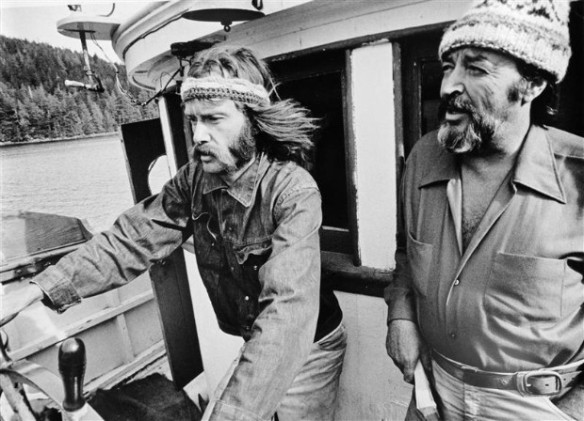the conversation hasn’t stopped
The executives at CBS must have felt that America was ready for more than idyllic, escapist TV fare when they brought All In The Family to the small screen in January of 1971. Based upon the BBC series Till Death Us Do Part, this ground-breaking situation comedy starring Carroll O’Connor as opinionated blue-collar worker Archie Bunker presented the real world from a new but familiar vantage point. Series like The Andy Griffith Show, Hogan’s Heroes and McHale’s Navy, while classics in their own right, had a sugar-coated outlook on life’s little problems, nothing was so terrible that it couldn’t be solved with a happy outcome in 22 minutes. Archie and his family broke that tradition with story lines that not only ran from one week to another but broached the previously unmentionable with a gusto that left some outraged and others rolling with laughter on the floor. The paunchy loading dock worker had a big-mouth and couldn’t care less whether his opinion on everything from ethnic minorities (like his son-in-law christened “Meathead”) to the machinations of big business and government were correct or not – it was his right as a tax-paying American to let everyone know what he thought. Producer Norman Lear was careful to temper Archie’s often abrasive character with some sympathetic qualities and liberally seasoned the shows for comic effect with the sounds of real life like belching and toilets flushing, something that would have raised eyebrows a mere five years earlier.
One of those atheist, long-haired hippie losers archie loved to hate
All in the Family was in many respects a microcosm of American convention and deportment. Television was pushing the envelope on censorship, topics that had been taboo as entertainment were pushed to the forefront and advertising (like that of cigarettes) once commonplace was banned. Both the networks and print media embraced with open arms the changes the last decade had fought so valiantly for – it was good business to promote opposing viewpoints and socially significant themes. Whether through humour or serious exposition, it was only a matter of time before their market share increased. Everything from the death of bad boy Jim Morrison, the Apollo 14 moon landing and Evel Knievel jumping over 19 cars on his motorcycle to Muhammad Ali and Joe Frazier in the ‘Fight of the Century’ became fair game for profit. It was no wonder that a whole segment of the population with more conservative views was finding this brave new world just a bit much to digest.
As Archie and his ever-loyal Edith sang in their duet that opened the show:
Boy the way Glen Miller played
Songs that made the hit parade.
Guys like us we had it made,
Those were the days.
And you knew who you were then,
Girls were girls and men were men,
Mister we could use a man
Like Herbert Hoover again.
Didn’t need no welfare state,
Everybody pulled his weight.
Gee our old LaSalle ran great.
Those were the days.
Read more on:
Carroll O’Connor
Archie Bunker
Jim Morrison
1971
1971 JukeBox

